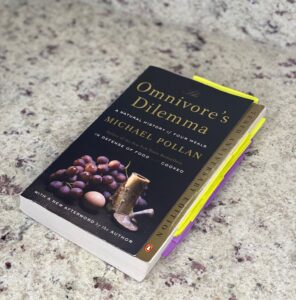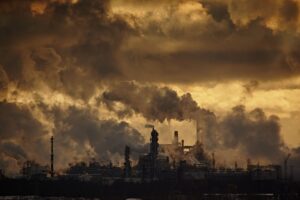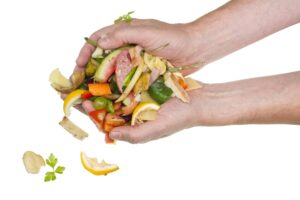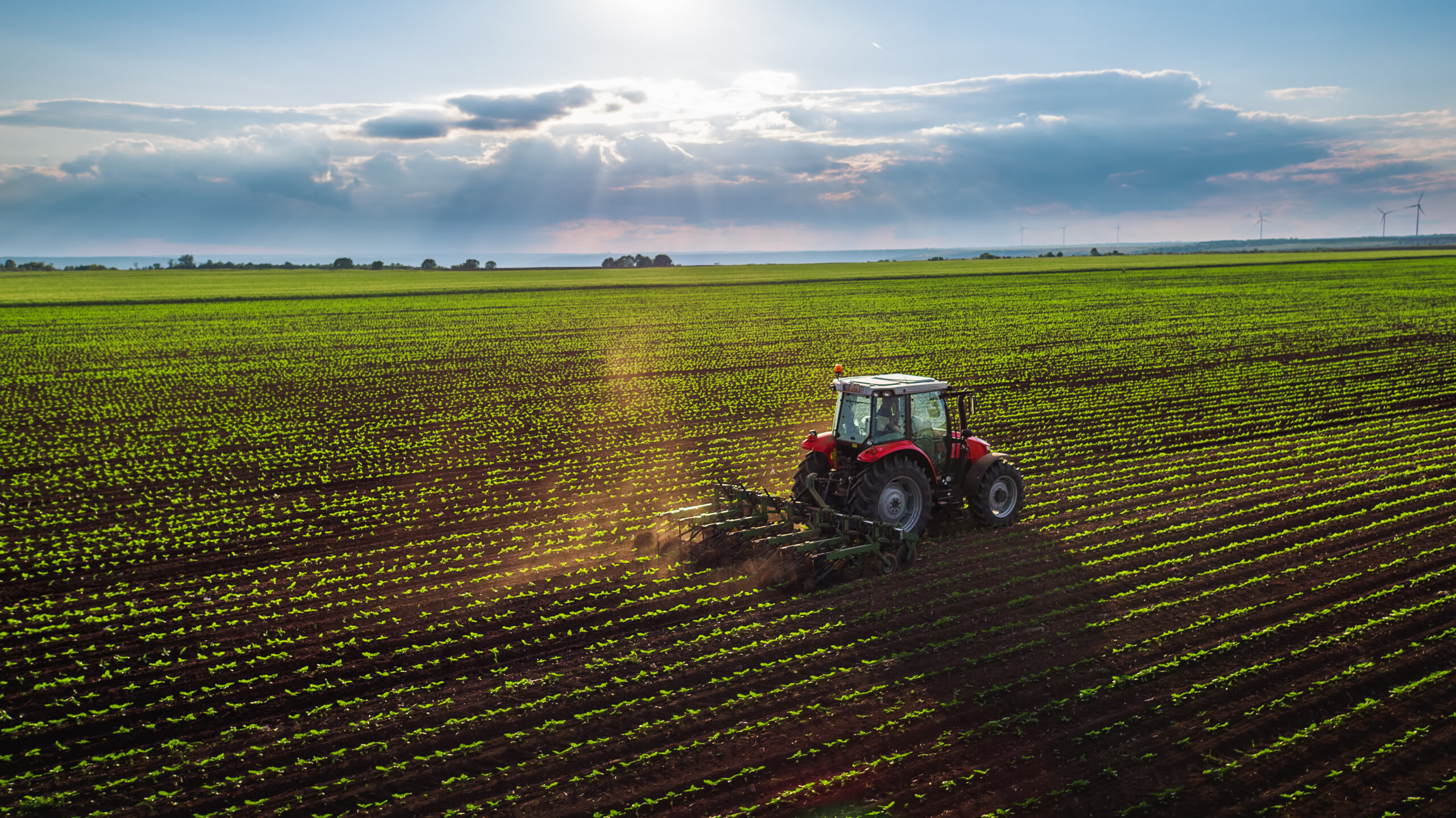The “Omnivore’s Dilemma…” by Michael Pollen
Just when I thought I couldn’t learn anything more about the earth, soil, and the food that we consume every day I opened Michael Pollen’s book, “Omnivore’s Dilemma, A Natural History of Four Meals.” The “Omnivore’s Dilemma…” is very insightful into the food industry and just what is sprayed on, or fed into, the food we purchase at the grocery store and then later consume. It was made clear to me that because we are so far removed from the farming, growing, and ranching process, we’re less likely, and able, to trace our food back to its source and have an opinion of how it’s processed. It appears the less we know, the better for the large food corporations.

My copy of this book was filled with notes. Such great pieces of information!
What should I eat? What am I eating? And where in the world did it come from? (17) Whether conscious or subconscious, we tend to ask ourselves these first two questions daily as we need to eat multiple times a day. However, the third inquiry takes a lot more brain power than we’re willing to give up as we tend to our busy schedules. As an investigative journalist, Pollen not only asks these questions but picks up the phone, or sends an email, in an effort to find an answer so that we don’t have to. What a relief, right? In doing so, the journalist does a marvelous job detailing all he’s learned on his farm stays and hunting trips. Pollen’s book has taught me and thousands of other readers a lot of what we otherwise would remain ignorant of. He has also changed my perspective on topics I thought I was firmly rooted in.
What I Learned From the Omnivore’s Dilemma
I’d like to start detailing what I learned because again, I feel as though it’s a LOT. Let’s start with the potentially obvious: corn is in just about everything we eat. I thought I was aware that we consumed a good amount of corn, but I had no idea it was up to this amount. It’s impressive how corn is processed to produce several different substances, but it’s not just in processed foods. We indirectly eat it from the chicken and beef we consume as well; both animals that don’t instinctually consume corn.
It was a weird concept for me to grasp how animals can be bred to consume corn and more efficiently turn it into meat. But it has yet to translate to my eating habits as I am still just as likely to put down this book and head to the kitchen to cook a meal containing this very CAFO meat. Even if I were to turn to veganism, that isn’t the end all be all due to the fact that field mice and other unwanted pests tend to be killed in fields that grow vegetables. It’s on a smaller scale, but unfortunately for vegans, animals still die as a result.
The last thing I will note is that Whole Foods isn’t the holy grail I chalked it up to be in my head. Following my last read, “Kiss the Ground” by Josh Tickell, I wanted to ride the organics train to avoid all the pesticides and other chemicals most of our fruits and veggies are showered in. Yes, all the food they carry is organic, but they still participate in the industrial food chain that ships food from one region to another, burning fossil fuels for travel and further polluting our Earth. Healthier? Yes. The most sustainable route in terms of growing, raising, and transportation? Regrettably, no.

This photo represents the dark secrets of industrialized farming that most people aren’t privy to.
A Changed Perspective
I admire Pollen’s willingness to get his hands dirty and participate in activities he’s never done before like killing pasture-raised chickens on the Polyface Farm (226). There his morals were challenged to the point where he almost put off consuming chicken for good. One major way my perspective has changed from reading his accounts is when it comes to hunting. Like most Americans, I didn’t grow up in a household that had hunters who went off yielding their guns and shooting for pheasants, ducks, or deer in their respective seasons. The closest I’ve even been to a real firearm is shooting a pellet gun once for a college course– though I did take a hunter’s safety course in high school as an elective but didn’t even bat an eye at the opportunity of going in to receive my hunter’s license.
Pollen had a similar upbringing, having also never hunted, but was dedicated to making a meal entirely from the food he had hunted, gathered, or grown. He was motivated enough to earn his hunting license and shoot a gun for the first time. His detailed account of hunting wild pigs in the forestry out in California changed my perspective because he opened my eyes to the fact that individuals have different intentions when it comes to hunting. I had written hunting off as “yee-haw” and a weird country pastime, especially when it comes to trophy hunting (though I’m still not a fan).
This book mentions that people who eat wild game tend to not have the same rate of heart issues as the rest of the population consuming corn-fed beef (75). A hunter and their friends and family can feast on animals that ate their intended forms of sustenance, as opposed to corn; in my eyes, it could be considered a form of eating whole foods. Hunting is also a way to connect with the earth by looking for patterns that tell whether an animal has been in the vicinity recently, or just keeping quiet and listening to the sounds of nature as you wait for a pig to cross your path. All that said, hunting with “pure” intentions, such as hunting a species that’s hurting its ecosystem or to have better quality meat, in my eyes is no longer such a bad thing.
Where Do We Go From Here?
Pollen’s writings strongly remind me that sustainability is a journey instead of a destination. If one were to drop all things and shop strictly organic, at farmer’s markets, and join a CSA they would feel some sort of shock, and not only a financial jolt (though there are strong arguments that for all the cheap food we consume, but it is also instead costing us our health, which in America is EXPENSIVE). It’s important to read texts like these to establish your why when it comes to switching up your food regimen so that this change is deep-rooted and not a phase that will eventually fall off.
Farmer’s markets and CSAs (to me) seem like the solution. Those options encourage us to eat with the seasons which in turn reduces the fossil fuel burned to bring other types of food to convenience stores near us and in turn keep local growers in business. Pollen mentions the idea of how we vote with our forks (421). This seems like a daunting task, but the small switches we make over time can and will make all the difference. The author also mentions what changes have happened on the national scale since he first wrote this book; how more and more farmer’s markets are popping up, how larger farming systems are dabbling in organic foods, etc.
Just like a lot of things, we’ll see progress over a matter of time. And your contribution to that change is just as important on a smaller scale. There are so many valuable think pieces that I left out in this summary of Pollen’s publication if you haven’t read “Omnivore’s Dilemma…” I suggest you download a copy (or if you prefer a hard copy, check one out at your local library) and devote a few minutes a day to reading this wealth of knowledge until you reach the end cover. It’s well worth your time. Thanks for taking the time to read this piece all the way through!

The big takeaway is that we CAN combat the issues in our current food market– there’s hope!
Links:
To read the previous blog posting covering “Kiss the Ground” by Josh Tickell, click here.
Polyface Farms has a significant impact on the course of the story. If you’d like to learn more about them, visit their website here: https://polyfacefarms.com/
